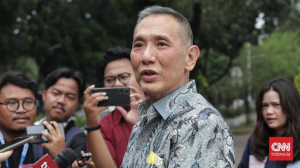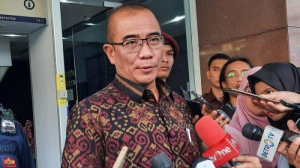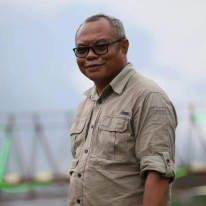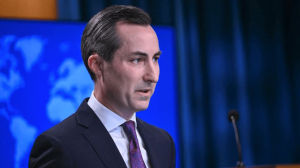Jokowi's sons joining regional head elections is a sign of building political dynasty
As President Joko "Jokowi" Widodo is poised to see his two sons follow in his footsteps in politics particularly for the 2024 General Elections, an opposition leader accuses him of building a political dynasty.
The Prosperous Justice Party (PKS)'s Surakarta chapter chairman Daryono perceived Jokowi's sons - Gibran Rakabuming Raka, currently Surakarta Mayor, and culinary businessman Kaesang Pengarep - running for the simultaneous elections as "inappropriate for Indonesia's democracy".
"They are Jokowi's children. As long as Jokowi is still an active president, with many privileges attached to him, it is impossible to separate him from his sons' political activities," he told Indonesia Business Post on January 27, 2023.
Running for mayor and governor
Kaesang - who got married on December 10, 2022 and had State Owned Enterprise Minister Erick Thohir as the organizer - would run for Surakarta mayor, replacing his older brother.
"There, I have leaked it. I am confused and astonished," Gibran said as quoted by detik.com. Jokowi's son-in-law Bobby Nasution is also a mayor in Medan, North Sumatra.
Daryono said although Jokowi might not and would not use his power to help promoting his sons, but his subordinates would eventually assisted their campaign in order to please the president. "His aides, his ministers and anyone around him will automatically [work to help his sons win the election]," he said.
In 2021 when Gibran ran for Surakarta mayor's office, there was no rivalry from other political parties. He won the election 16 years after his father's victory in the same mayoralty.
"We wanted to establish a coalition of parties but we failed. Our fellow politicians from other parties were vetoed by their central boards," Daryono said. Therefore, he added, PKS decided to abstain from the election.
"Our political culture was wounded. There was no political parties who dared to compete against him [Gibran]. No one gave recommendation for other candidates," he added.
Gibran said he would be ready to contest the 2024 gubernatorial race if he were nominated by Megawati Soekarnoputri, the chairwoman of the ruling Indonesian Democratic Party of Struggle (PDI-P). Gibran is a PDIP cadre, just like his father.
“Yes, I’m ready, but [we must wait] for the [chairwoman’s decision]. Once again, I am still learning, I still need a lot of input from my fellow seniors,” he said, as quoted by Kompas.
PDI-P executive Eriko Sotarduga said the internal party's support has been growing on the nomination of Gibran as its Jakarta gubernatorial candidate, teaming up with Social Affairs Minister Tri “Risma” Rismaharini. The Central Java governorship, which is currently held by fellow PDI-P member Ganjar Pranowo, has been cited as another possibility for Gibran.
Not a political dynasty
Political analyst from Pelita Harapan University Emrus Sihombing said that despite the interests of Jokowi's sons to run for regional head elections, the president was not building a political dynasty.
"When Gibran ran as a Surakarta mayor and then won, it's because the people's acceptability of the family is high. The people can accept, trust and will be enthusiastic. Gibran and Jokowi have no defect. In Surakarta, Jokowi had 90% electability in his second period, while Gibran won the election in the first round," he explained.
In his opinion, Jokowi is not establishing a political dynasty. Based on the Constitutions, both Gibran and Kaesang have the rights as citizens to be elected in the eletions.
"In theory, a dynasty means a familial regeneration of power by appointment. However, in Gibran's and Kaesang's case, the people vote for the candidate and decide who will win the elections. It is not a dynasty, but a democracy. It's the people who make the decision," Sihombing said.
He added that it was reasonable and both Gibran and Kaesang would get the benefit from the people's acceptance and good perception from their father.
"If a father has a good behavior and positive perception, it will have good impacts to his children. It is a social theorem," he concluded.
Tag
Already have an account? Sign In
-
Start reading
Freemium
-
Monthly Subscription
20% OFF$29.75
$37.19/MonthCancel anytime
This offer is open to all new subscribers!
Subscribe now -
Yearly Subscription
33% OFF$228.13
$340.5/YearCancel anytime
This offer is open to all new subscribers!
Subscribe now







